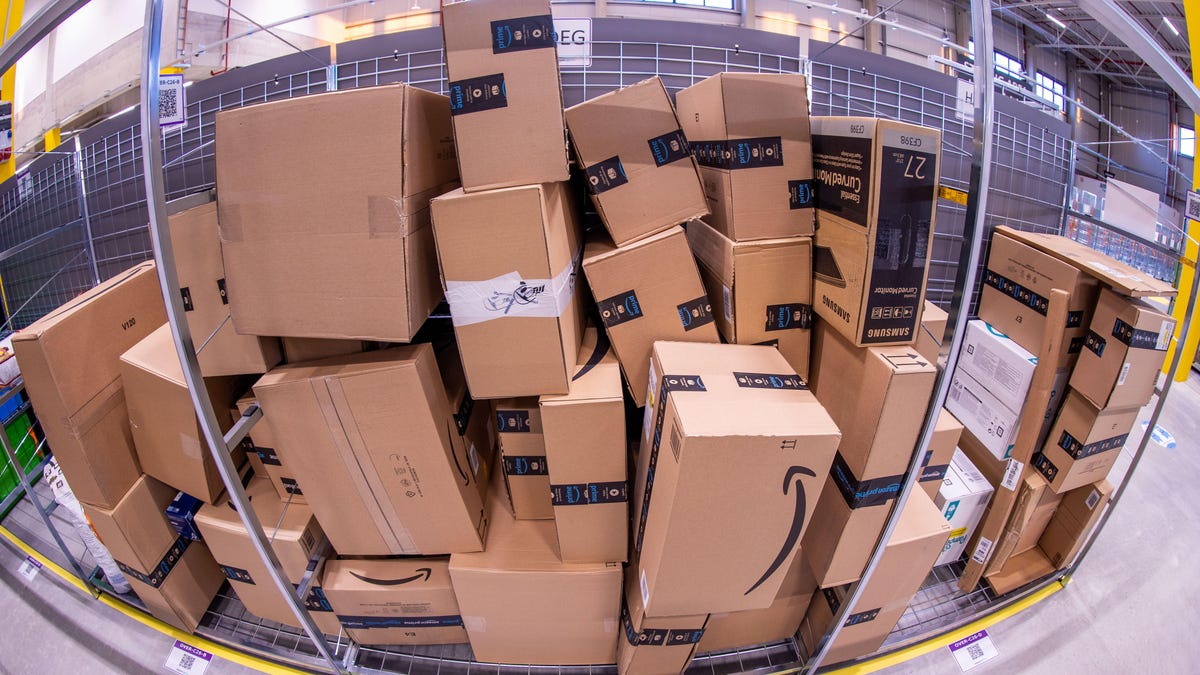 Why You Can Trust CNET
Why You Can Trust CNET Amazon Sees Dip in Sellers Signing Up to Sell Counterfeits

Amazon has faced criticism for putting consumers at risk and hurting businesses by providing a platform for selling counterfeits.
What's happening
Amazon is increasing investments aimed at keeping counterfeit products off its site, according to an annual report, part of its effort to protect consumers from fraudulent products and businesses from knock-offs.
Why it matters
E-commerce has made it easy for counterfeiters to sell sham goods to millions of people, defrauding consumers and legitimate businesses.
Amazon said it ramped up investments in 2021 to keep counterfeit products off its retail site and saw signs its efforts are working, according to an annual brand protection report it released Wednesday.
The company spent more than $900 million on its anti-counterfeit programs and employed over 12,000 people focused on the problem in 2021. That's up from $700 million and 10,000 people in the prior year. At the same time, Amazon said its automated systems detected and stopped fewer attempts from bad actors to set up stores on the site in 2021 and that one measure showed fewer brands on average flagged cases that turned out to involve counterfeits.
The increasing investment of money and manpower from Amazon is necessary, said Mary Beth Westmoreland, vice president of technology at Amazon.
"That unfortunately speaks to the fact the problem of counterfeit isn't going away," Westmoreland said, adding, "it's an industry-wide problem."
Counterfeiting has plagued e-commerce for years. Online shopping makes it easy for customers to buy products from all over the world and for small businesses to find a global market, but it also makes it simple for counterfeiters to sell shams to millions of people. As the largest e-commerce platform in the US, Amazon has faced criticism from consumer protection advocates and business groups for exposing shoppers to potentially dangerous knockoffs and damaging businesses by providing a platform for fraudsters.
In addition to hiring AI scientists tasked with quickly identifying fraudulent products and shady sellers, Amazon has responded by creating a brand registry that establishes a line of communication with the e-commerce giant and streamlines tools for reporting problems. It's also created a system for brands to suppress listings that are believed to be counterfeits of their products.
Amazon has also sued sellers it alleges are selling counterfeit products, asking courts to order them to stop selling on Amazon. In April, Chinese authorities raided a warehouse containing counterfeit luxury goods after Amazon and fashion house Salvatore Ferragamo shared intelligence on the alleged operation.
US lawmakers have attempted to address counterfeits with legislation, and Amazon has endorsed the INFORM Act, as have Etsy and eBay. The bill would require e-commerce platforms to verify information about sellers on their sites.
Amazon has implemented a version of seller verification, requiring in-person or on video sessions with sellers, who must provide identification documents in order to open up online stores that sell in the US, UK, the European Union, Canada and Japan.

